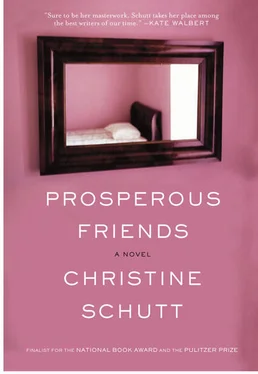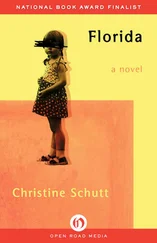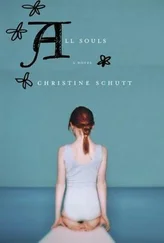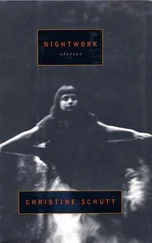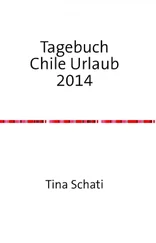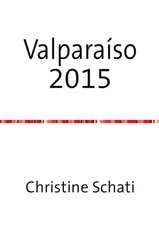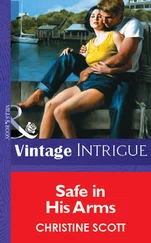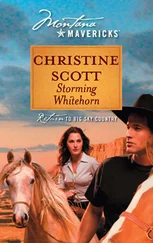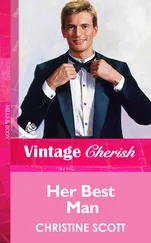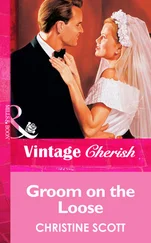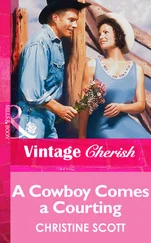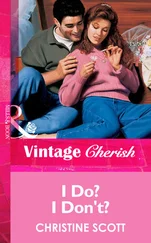Christine Schutt - Prosperous Friends
Здесь есть возможность читать онлайн «Christine Schutt - Prosperous Friends» весь текст электронной книги совершенно бесплатно (целиком полную версию без сокращений). В некоторых случаях можно слушать аудио, скачать через торрент в формате fb2 и присутствует краткое содержание. Год выпуска: 2012, Издательство: Grove Press, Жанр: Современная проза, на английском языке. Описание произведения, (предисловие) а так же отзывы посетителей доступны на портале библиотеки ЛибКат.
- Название:Prosperous Friends
- Автор:
- Издательство:Grove Press
- Жанр:
- Год:2012
- ISBN:нет данных
- Рейтинг книги:5 / 5. Голосов: 1
-
Избранное:Добавить в избранное
- Отзывы:
-
Ваша оценка:
- 100
- 1
- 2
- 3
- 4
- 5
Prosperous Friends: краткое содержание, описание и аннотация
Предлагаем к чтению аннотацию, описание, краткое содержание или предисловие (зависит от того, что написал сам автор книги «Prosperous Friends»). Если вы не нашли необходимую информацию о книге — напишите в комментариях, мы постараемся отыскать её.
Prosperous Friends
Prosperous Friends — читать онлайн бесплатно полную книгу (весь текст) целиком
Ниже представлен текст книги, разбитый по страницам. Система сохранения места последней прочитанной страницы, позволяет с удобством читать онлайн бесплатно книгу «Prosperous Friends», без необходимости каждый раз заново искать на чём Вы остановились. Поставьте закладку, и сможете в любой момент перейти на страницу, на которой закончили чтение.
Интервал:
Закладка:
*
In the watercolor of the lily pads Dinah likes best, the lily pads are a congestion of greens with here and there a pink or yellow crown for flower. The sky is made of orange strokes; the white paper shows through. What time is it in the painting? Could be dawn or sunset. The pond is a party, present tense and happy, but he might very well have started painting it on one of his silent, unhappy mornings. The same was true for the nude paintings. What were his sensations when painting Dinah in the garden as seen from the studio with nakedness inside this summer in the shape of Isabel? Two summers ago, it was Caitlin with the red hair. Caitlin’s pubis is the same red, not quite a red, but an orange brown, burnt-brown triangle, very small, the hips broad invitations. Never on any of the nudes are their nipples largely, colorfully noted. A bright triangle, roughly brushed in, is the focal point of the nude model’s body. As far as Dinah’s concerned, that is. No, in truth, the dynamic element is really the color and the contrasts; the body, except for suggested sexual parts, is pink; the facial features are incidental; the young women — young women to her, to Dinah — the young women are shapes.
Some of what has happened, some of what has been written about her husband and his interviews have made Dinah cynical. His work has been described as “showing us voluptuous ease,” but also conveying “a respect for labor. . no doubt a residue of his own early years of physical toil.”
Toil? What toil to be the son of wealthy parents who have made it possible to be an artist, a figure destined to be reliant on a trust fund so that a trust fund has been provided?
How old were the kids conducting these interviews anyway?
Dinah was thirty when she first met Clive in an elective course on figurative painting. He seemed very young to be a visiting professor, but he told her that she seemed very old to be an undergraduate. “Just wise” was what she said. She had left college after her freshman year to marry her high school sweetheart and fuck and fuck and fuck with impunity before he deployed for Vietnam. The year was 1969. The baby, if indeed there ever was one, died; Dinah saw blood, and after that more blood, unbidden, clotted, black. The high school sweetheart came back, and they stayed married for two years. Why? She has knocked against this question before and had no answer except to remember why she married in the first place. His body! His body was the first place. Lolling in the school gym to see him and then to lean into his body. Talk was beside the point. The point was his long body, the combative hardness of his muscled body, and the smell of his body after running when his T-shirt was no more than a tissue she pressed her nose to. His inimitable smell! She has not tasted his like and never expected to even as she rubbed against him when they were no more than sweethearts; she knew this olfactory arousal would be forever particular to him, James, Jimmy, Jimbo Card. And she was right.
For a time her name was Dinah Card and she was married to Jim Card, who called her Dee.
Now she is Dinah Harris and nothing of her hometown is known; she writes under this name even as she writes of her hometown. The baby who never was is an informing sadness, an ink that blooms on the white sheet.
At age nine she broke her arm playing a stupid game with her best friend of the time, Cynthia. Cynthia tipped a hammock hooked up in a metal frame by sitting on the end and made Dinah climb to the top of what she called the mountain. “Climb the mountain!” Why not go to the park and play on the jungle gym? “Climb it!” Dinah slipped, her arm got caught somehow, and she fell — she was never able to explain the accident; even the game Cynthia had invented was hard to describe, but she was committed to it. Cynthia didn’t believe Dinah had broken her arm, but Cynthia’s mother believed it. “Dinah’s hardly a sissy” was how Cynthia’s mother defended her. First sensations of mortality then, the start of the ugly years and trembling, Dinah, five feet barely-something inches, feared most people, men especially. Her art teacher took her aside for more than one reason; Clive took her aside, too, but by then, at thirty, she knew what men could and could not do to women, and she was not afraid of Clive.
Weirdly fearless — adventuresome? — Dinah was the first in a high school class of fifty who dared to color her hair, and in Dinah’s case, blue streaks. She drew on herself as she did on other surfaces. She was on her way to mascara when she met Jim. Now her hands sometimes shake in applying eyeliner, and her eyes come out uneven and she thinks she looks tragic, like a French chanteuse — black pointy lips on a sad face informed by too much knowing.
Another version of Dee and Jim Card: a rusty S.O.S pad disintegrating in her hand. The sink is dry, and the refrigerator, emptied, stinks; elsewhere locked windows, old air. Who left the apartment first? No sequence but objects, scenes, his glove without its mate.
She doesn’t remember Jim’s voice though she sees him yelling at her on the stoop to their apartment. Henry Street, Madison, Wisconsin, around the corner from State Street, the center of power: at one end of State Street the university, at the other, the capitol. Politics, their politics were diverging when she thought, as lovers, she and Jim should be in accord.
Another time she came back to their apartment to find a pyre of old books from courses she had taken — an entire term on Shelley, books on Freud and books by Freud and books with dialectic in their titles — all stacked as for a purifying rite in the middle of the bare room where she and Jimbo had once done everything but cook and sleep. He left a pack of matches nearby.
The books were at the end, at least that’s how she remembers it.
But why think on the past on such a day — pink wind, timid sun — softness in all things? She is on her hands and knees on the granite terrace Clive laid out a long time ago. She is neatening up with self-abasing ceremony. Her face nearly touches the stones in sorting the weeds from the moss and fancy pussytoes.
Something else she was thinking — what was it?
At Scottie Rostow’s party, she and Jim didn’t talk to anyone but huddled, facing each other, knee to knee, arms around in a loose embrace, heads pressed together, a mourning posture, both of them glum. But a family’s history of service in the Marines is not an inheritance to squander, she learned.
Something else, this: Jim is sitting on the plank seat chair in his mother’s kitchen, senior year, track season. She practically lives at his house. She snaps the kitchen towel at his little sister and talks with his mother about him in front of him. He drinks a milkshake at ten thirty every morning. Nothing sticks to him but it turns to muscle. He is sitting on the plank seat chair and taking off his running shoes that in memory turn silvery, melted and runny. After his exertions, the muscles in his arms jump just doing little things, like taking off his shoes. He is sitting on the plank seat in a plank of light.
Clive walks carefully over the terrace, examines her work, says, “Good job.” But the ache! Her shoulders especially, she massages her shoulders until her hands cry out, please! Poor, misshapen hands, the fleshy chuff deflated, her thumbs have disappeared. When she holds out a hand, stop-sign fashion, only four fingers show.
“Look at that, will you,” Dinah says, and he does. He frowns and gives her his hand and helps her up off the pavement. The deep imprint of her knees in the foamy kneeler is a disconcerting sight — too mortal.
“It doesn’t stop you,” Clive says.
“Plainness is the beauty of aging:
cropping my hair, blotting excess,”
Читать дальшеИнтервал:
Закладка:
Похожие книги на «Prosperous Friends»
Представляем Вашему вниманию похожие книги на «Prosperous Friends» списком для выбора. Мы отобрали схожую по названию и смыслу литературу в надежде предоставить читателям больше вариантов отыскать новые, интересные, ещё непрочитанные произведения.
Обсуждение, отзывы о книге «Prosperous Friends» и просто собственные мнения читателей. Оставьте ваши комментарии, напишите, что Вы думаете о произведении, его смысле или главных героях. Укажите что конкретно понравилось, а что нет, и почему Вы так считаете.
